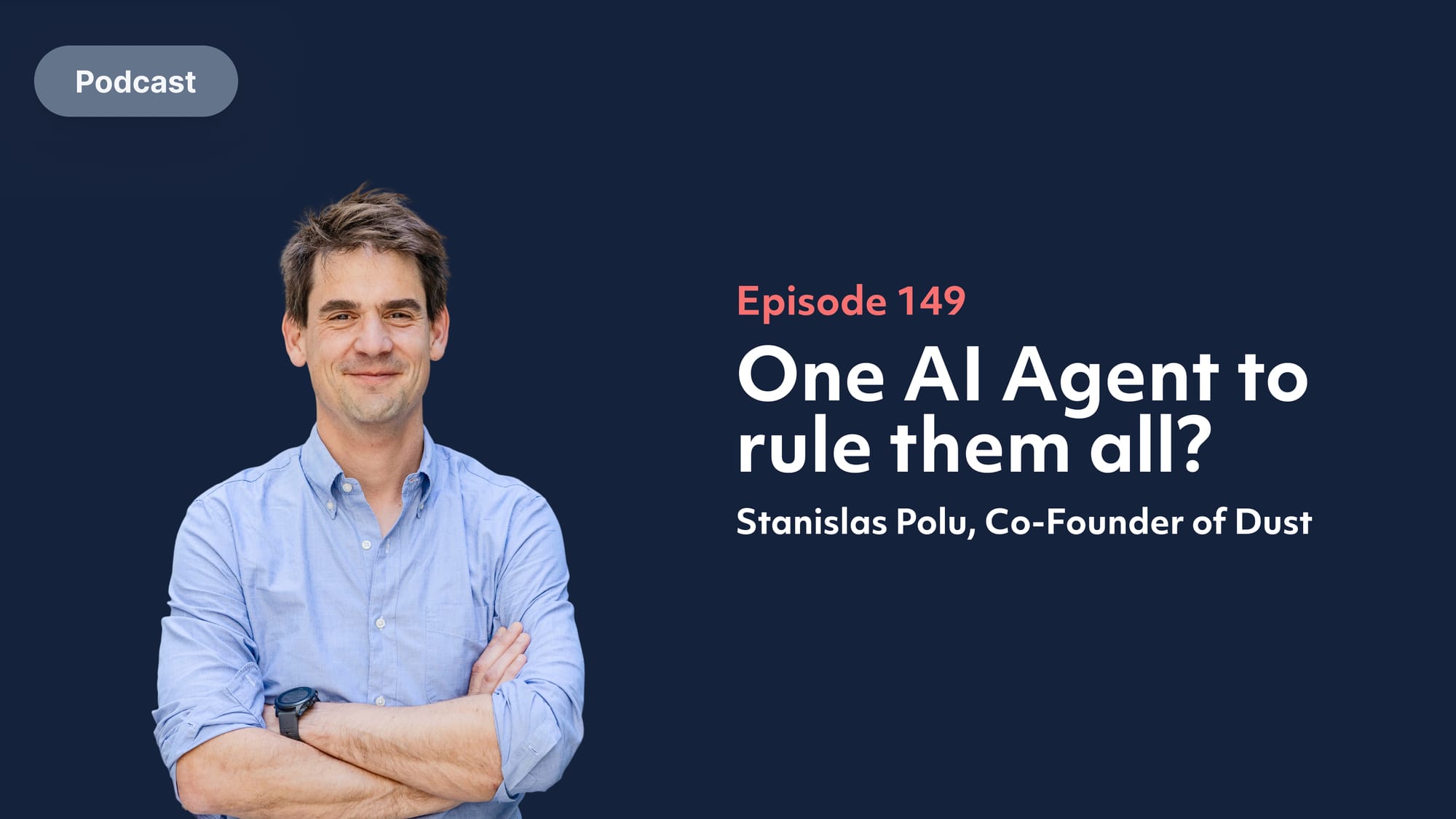Reflections on Dust's Journey: Insights from the Open Source Startup Podcast

This story is brought to you by Stanislas Polu, co-founder of Dust
I recently had the opportunity to share Dust's journey on the Open Source Startup Podcast, and I'd like to expand on some key insights from our conversation.
The Shift to Probabilistic Software
We're witnessing a significant transition in the software landscape. We're moving from deterministic to probabilistic software, and this shift brings both excitement and challenges. It's crucial to understand that we'll never completely eliminate the element of uncertainty—what we often call "hallucinations" in AI. This reality necessitates a new approach to education and user expectations.
The Power of Focused AI Agents
At Dust, we've discovered that multiple, specialized agents often outperform a single, general-purpose one. This approach not only improves the quality of interactions but also eases adoption across various teams within an organization. By allowing each agent to excel in a specific domain, we're able to provide more accurate and relevant support to users.
Building a Central Agent Management System
Our vision for Dust is to become the central platform where companies build and integrate AI agents with their existing tools. This centralization is key to maintaining consistency, security, and efficiency across an organization's AI implementations.
The Customization Hypothesis
While many companies face similar use cases, we've observed that their practical implementation often varies widely. Our core features allow teams to tailor AI agents to their specific workflows and tools. This customization is crucial—it's the difference between creating effective solutions and offering one-size-fits-all tools that fall short of meeting unique organizational needs.
Driving Company-Wide Adoption
One of our key successes has been achieving high penetration within organizations. We often see up to 70 percent of employees using Dust on a weekly basis. However, our ongoing challenge is to quickly demonstrate this value to new organizations. We're constantly refining our onboarding process to help companies realize the benefits of our platform as rapidly as possible.
Balancing Complexity and Accessibility
We're always working to strike the right balance between power and usability. Our goal is to make our product robust enough for advanced users while keeping it accessible to team members without technical backgrounds. This balance is crucial for widespread adoption and effective use across entire organizations.
The Importance of Open-Source Transparency
Our open-source strategy goes beyond just code sharing. It builds trust with our users and pushes us to maintain high development standards. This transparency also fosters a collaborative environment where we can learn from and contribute to the wider tech community.
Looking to the Future
As we move forward, we're exploring ways to enhance accuracy and reduce AI errors. Our focus remains on augmenting human work rather than replacing it. We believe that AI should empower people to work more effectively, not attempt to supplant human judgment and creativity.
I'm excited about the progress we've made and the challenges that lie ahead. At Dust, we remain focused on creating solutions that truly work for our users, adapting to their needs, and evolving alongside the rapid advancements in AI technology.
🎧 Listen to the full podcast here https://podcasters.spotify.com/pod/show/ossstartuppodcast/episodes/E149-One-AI-Agent-to-Rule-Them-All-e2ohd46/a-abhj19v

